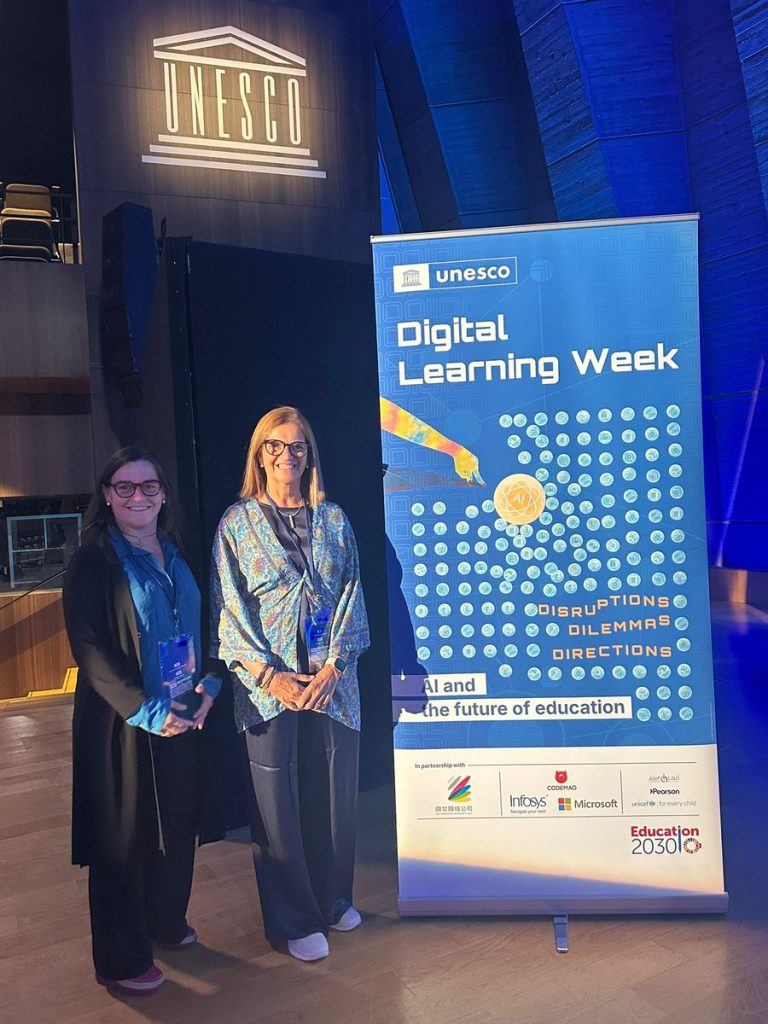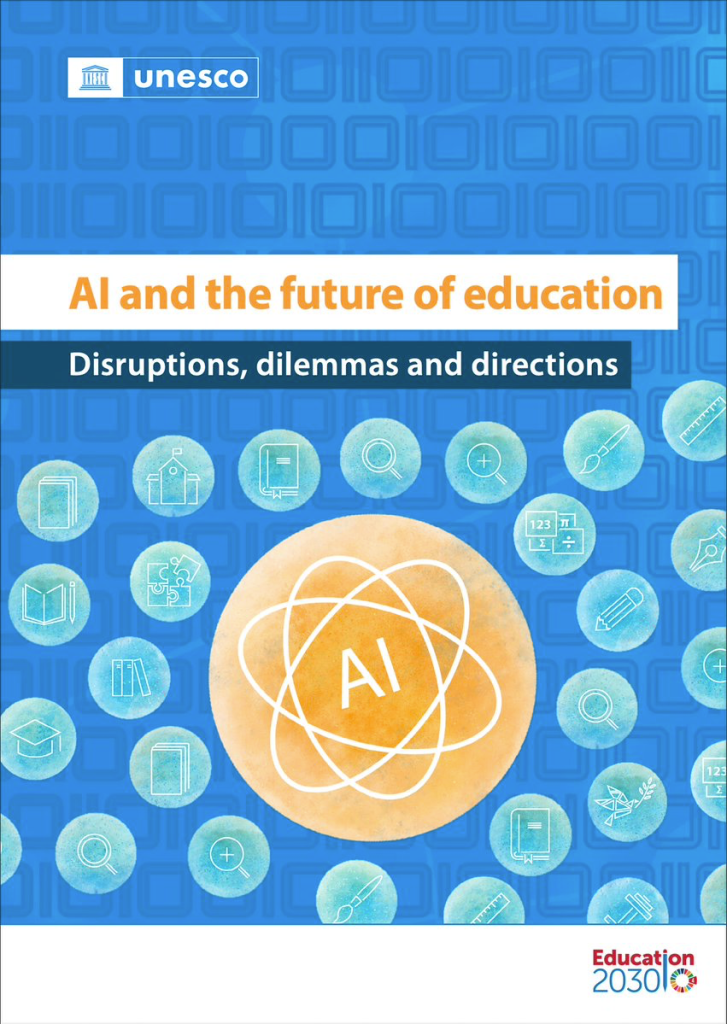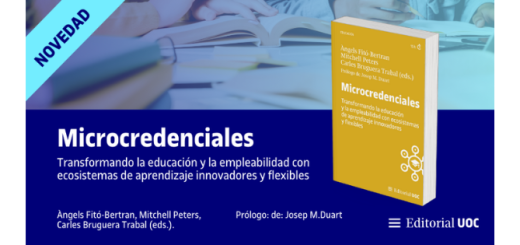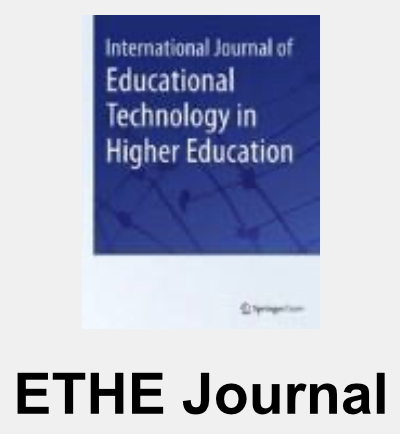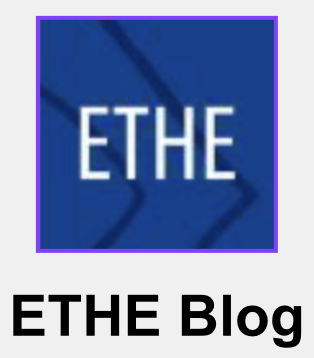Edul@b participates in the Digital Learning Week 2025 at UNESCO: Transforming Education with Artificial Intelligence
Montse Guitert i Teresa Romeu Present “Challenges of Generative AI in Higher Education: Promoting Its Critical Use Among Students”
Dr. Montse Guitert and Dr. Teresa Romeu from the Edul@b Research Group (Open University of Catalonia) participated in the Digital Learning Week 2025 promoted by UNESCO, this year’s edition was held in Paris from September 2 to 5. Under the title “AI and the Future of Education: Disruptions, Dilemmas and Directions”, researchers and professionals from around the world debated how to chart ways to integrate AI into education in an equitable and ethical way, ensuring that technology serves as a force for inclusive progress.
On September 3, during the session “AI and Higher Education: Rethinking Pedagogy, Assessment and Academic Practice”, Montse Guitert and Teresa Romeu presented their study entitled “Challenges of Generative AI in Higher Education: Promoting Its Critical Use Among Students” the result of a research recently published in the Revista Iberoamericana de Educación a Distancia, consult the article here. Their intervention provided a critical and necessary look at the integration of generative AI in higher education, highlighting the importance of promoting reflective and critical uses among students.
The conference featured the participation of UNESCO members, education ministers from around the world and presentations by professionals in the area of artificial intelligence and education. You can retrieve the recordings of the plenary sessions through this link, you can also consult the complete agenda of the UNESCO Digital Learning Week, here.
New Publication by UNESCO: «AI and the future of education: Disruptions, dilemmas and directions»
Coinciding with the event, UNESCO has published a key document with the same title. This publication proposes a deep reflection on how AI is transforming education and raises philosophical, pedagogical and ethical dilemmas. Through a critical and humanistic approach, UNESCO proposes new paths to guide the integration of AI in a more inclusive and ethically sustainable way.
Whether through pedagogical design, policy reform, or ethical governance, we must think, dialogue, and learn together to co-create an inclusive, ethical, people-centered, and ecologically sustainable AI for the futures of education. We therefore have a collective responsibility to shape these futures with care, clarity, and courage.
You can consult the new UNESCO publication “AI and the future of education: Disruptions, dilemmas and directions” at the following link.
Conclusions of UNESCO Digital Learning Week 2025 in Paris
The Digital Learning Week 2025 in Paris has deepened the debate on the future of artificial intelligence in education with a very clear idea: we are the people and communities who decide how we want technology and artificial intelligence to be integrated into educational systems. Therefore, this transformation is an opportunity to reinforce the values of inclusivity, justice and sustainability.
It is evident that the use of AI does not have an equal penetration. Developing countries use it as a tool to promote inclusion, productivity and digital sovereignty. In Europe, the emphasis is on the ethical dimension with a vision of shared responsibility. In any case, AI will shape the education of the future, but we have the ability to decide how it is implemented and used.
In this sense, it is necessary to help students develop essential skills such as understanding how to interact with AI, critically evaluating the information collected, acting with ethical commitment and using technologies in a productive and meaningful way.
From September 2 to 5, the debate was marked by three main axes:
- Disruptions: the role of the teacher is transformed, as he becomes not only a professor, but also a tutor, companion and coach.
- Dilemmas: ethical and pedagogical questions, which require collective reflection.
- Directions: how to address the digital divide in AI, protecting security and ethics, investing in teachers, promoting local and cultural relevance, and simultaneously strengthening global solidarity and establishing common standards.
In conclusion, the UNESCO Digital Learning Week 2025 in Paris has been a space for reflection on the future of education, which must always keep the values of inclusion, solidarity and sustainability at the center, together with people, to be able to transform education with a tool as powerful as AI.

